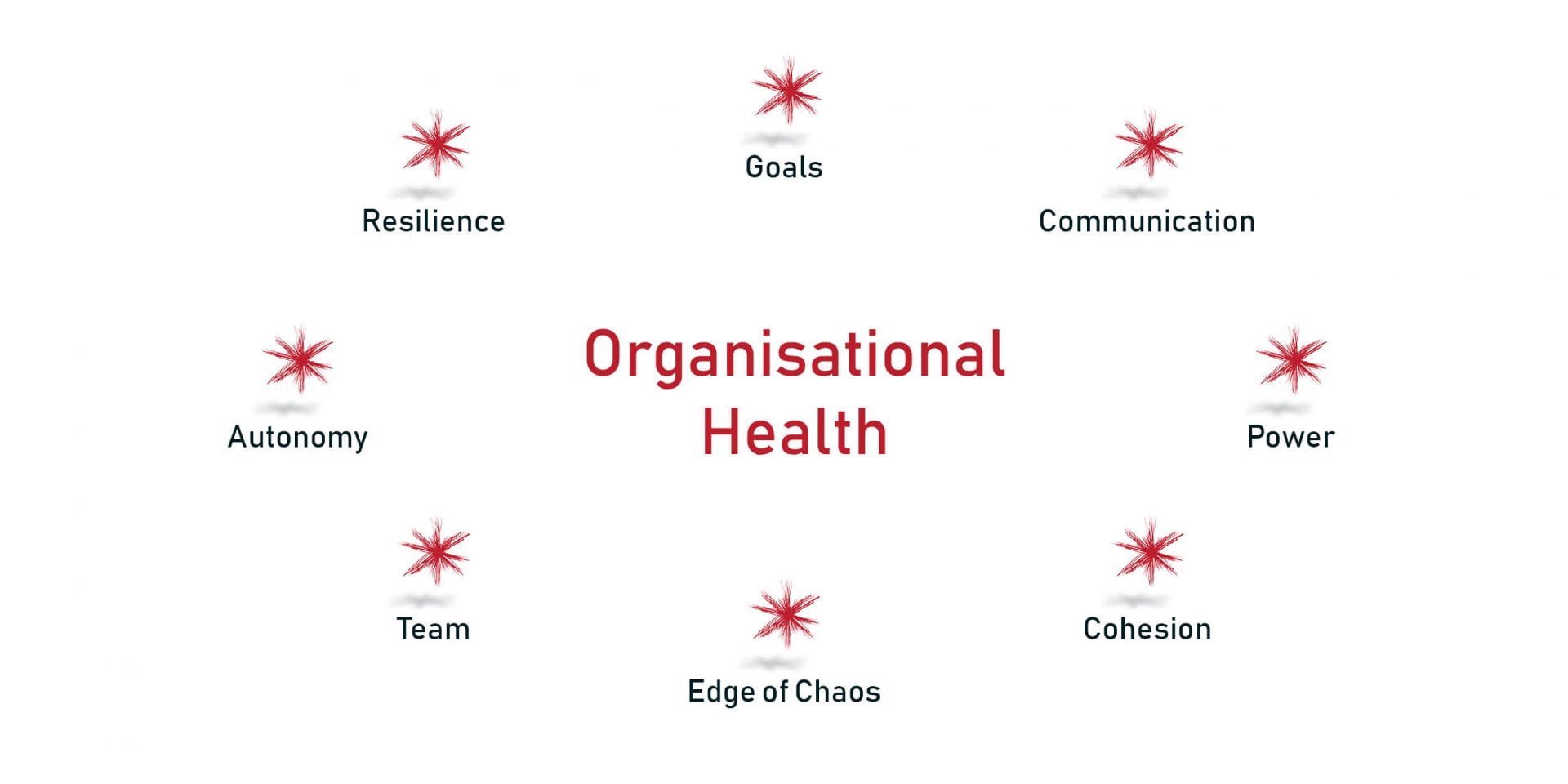Organisational health, as defined by www.organizationalhealth.com, is an “organization’s ability to function effectively, to cope adequately, to change appropriately, and to grow from within.”
There is some sense that organisational health is comprised of a number of areas. Some suggest there are many areas that Affectus deals with but let’s have a look at a few:
- Goals. The organisation having a goal, a vision and for everyone to buy into that goal or vision.
- Communication. Clear channels and clear messages – up, down and across with and from everyone.
- Power. To understand power and equalising (or evening out) the power within an organisation structure.
- Cohesion. People within the organisation understanding where they fit in and how to influence the organisational direction and outcomes.
- Edge of Chaos. The flexibility in the organisation to ensure people are working on the edge of chaos to ensure new concepts are in circulation.
- Team. A state of security and satisfaction for the people who are part of the organisation.
- Autonomy. Organisational understanding of and personal opportunity for autonomy.
- Resilience. A high tolerance for coping with stress, and a leadership responsibility to support and oversee the personal resilience of people connected to the organisation.
Why is it important?
When Affectus considers the above areas we understand again the importance of our work in the leadership space. However, it is really valuable to consider why it is important to review and lead in the area of organisational health.
We have collected many anecdotes over many years that illustrate organisations who take organisational health seriously. Also, unfortunately, those who haven’t. We are not sure about the direct connection with financial benefits. However, it goes without saying that in our years we see organisations who consider these aspects have more engaged and rewarded people.
A couple of examples.
About four years ago Affectus was invited to be part of a business review. We attended as thought leaders to assist the organisation move beyond their current market position. It was a fascinating day asking “why” “what else” “really?” “how about this left field idea?”. However, as we drove away, our debrief and reflective conversation concepts where:
- That team is clear about its purpose: all levels of the business were sitting in the room and they know where they are heading.
- They are all clear about each of their roles: the employees, contractors, and Board all know what they are there for.
- Who were the supervisors in the room: it was hard to identify who was more important as nearly everyone spoke candidly.
- They have clearly been through challenging times but are also not afraid to go to the edge of chaos and see what else is out there.
Outcome: At the time the company was at the leading edge of the industry. Currently, they are a long way ahead of the pack.
At precisely the same time and by coincidence, Affectus began mentoring a couple of employees within another organisation in a different industry. Both mentees self-identified as middle-level supervisors.
We heard stories that concerned us for the future of the business. Therefore, key areas we encouraged the mentees to action were:
- Discover the vision/purpose/why of the organisation. Then integrate their individual work.
- More fully understand the flow of communication within the organisation. Attempt to relieve the “roadblocks” to ensure more effective decision-making and action.
- Discuss the senior management understanding of autonomy and team. Get a sense of how to build both these areas for the overall building of workforce resilience.
Outcome: This business, as highly regarded as they were, lost key and “edge of chaos” staff. One staff member exited the businesses and specifically mentioned the need for the business to think through autonomy, communication and team. It is also clear that this organisation has disengaged with leadership skilling of staff.
What can you do to influence organisational health?
It is important to understand how valuable it is to review organisational health. In early 2019 Affectus will be developing an organisational health program. This program will provide further opportunity to get a better handle on your organisational health.
If you are reading this and wondering what steps can I take now to get a better handle on my organisation's health we encourage you to review the workshops you have attended. We are sure, through our evaluation processes, that our workshops and programs have a very positive impact. Sometimes the knowledge and information we provide need to be looked at again.
If you have attended an Exploring Your Why Workshop or a Chaos workshop, relook at your thinking. Consider how can this be relevant to my organisation. Plus, what action can I take to assist “us” regarding this area of organisational health?
If you have attended a 3 or 9-day program with us we encourage you to go back and look at the areas of:
- communication
- goal setting
- power
- teams
and find ways to action greater change in the organisations you are part of.
Stay tuned and get involved in our single workshops. They may spark great organisational health. And as mentioned above we will be developing an organisational health concept in 2019.





